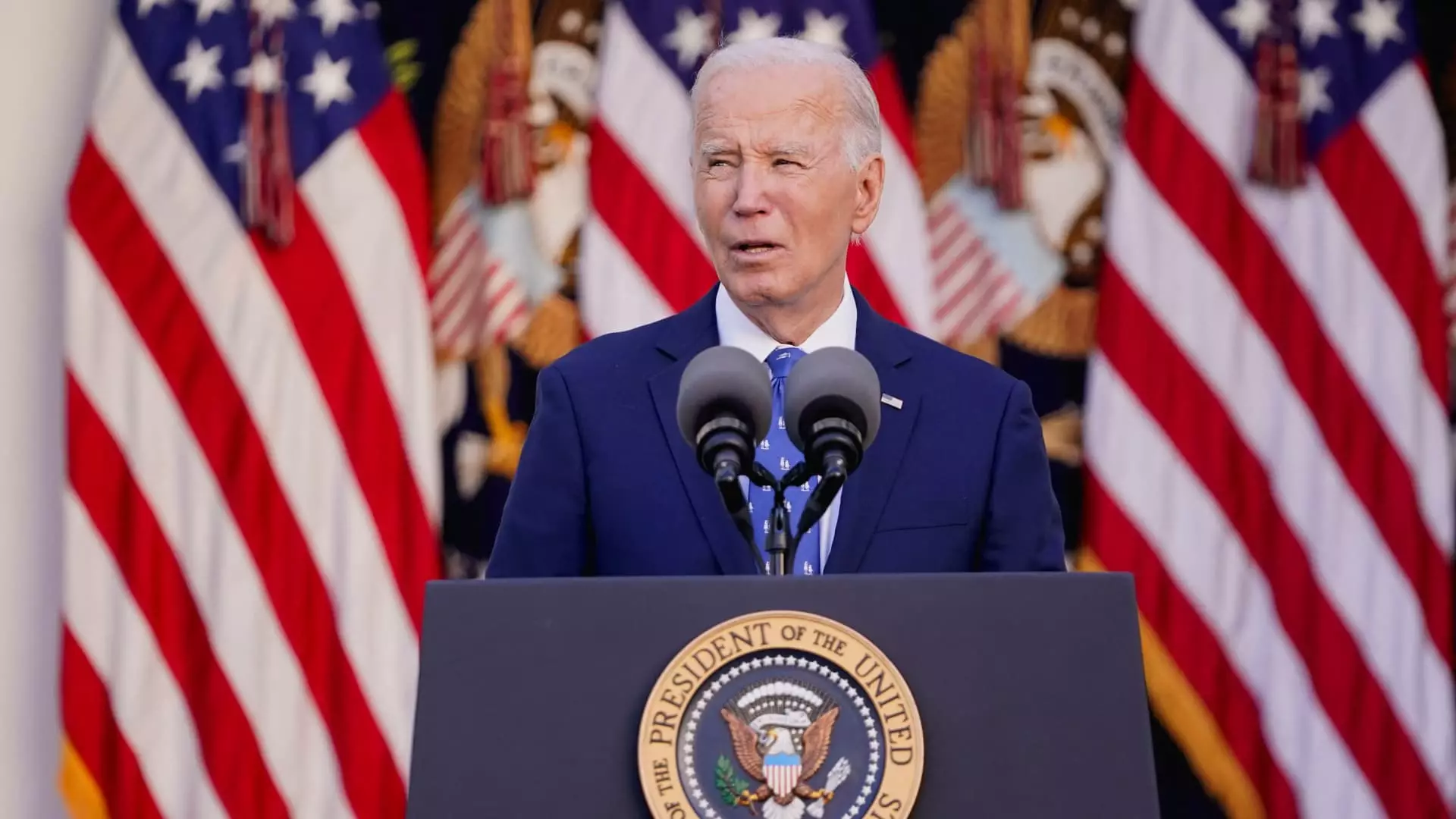The recent developments in Syria have ignited hope and apprehension across the globe, particularly among the Syrian populace, who have endured the oppressive reign of Bashar al-Assad for over two decades. President Joe Biden’s recent remarks resonate with a blend of optimism and caution, highlighting a pivotal moment for the country as it embarks on a potential transition to a more democratic governance structure. In his address, Biden underscored that this juncture is not merely an end to tyrannical rule but a critical beginning for Syria’s citizens to forge a new path toward a brighter future.
Biden articulated this moment as a “historical opportunity,” reflecting the aspirations of many who have yearned for freedom, justice, and stability. The removal of Assad, a figure long synonymous with repression and brutality, presents a unique chance for grassroots initiatives to emerge as foundational elements in rebuilding the nation. The discourse around this transition must focus on empowering Syrians, enabling them to take charge of their destiny, and redirecting the momentum that their struggle has garnered over the years.
However, Biden’s speech also contained a sober reminder of the volatility accompanying such a shake-up in governance. While celebrating the ouster of a dictator, the President cautioned against the myriad uncertainties that lie ahead. The political landscape in Syria is fraught with complexities, including a multitude of factions, each with their own agendas, and the specter of extremist groups like ISIS, which have long exploited chaos to further their aims.
The persistence of ISIS poses a significant threat to the newfound stability, as the organization is poised to exploit any power vacuum left in the wake of Assad’s departure. As underscored by Biden, the U.S. military will not take a passive role in this evolving narrative. The commitment to sustaining counter-ISIS operations highlights a strategic approach aimed not only at thwarting the group’s resurgence but also safeguarding the interests of regional allies such as Jordan, Iraq, Lebanon, and Israel.
Biden emphasized the necessity of assessing not just the major players—like the former regime and emerging leadership—but also other factions that participated in the uprising against Assad. The message is clear: while the end of an era may bring about new leadership, it does not automatically guarantee that such leadership will adhere to the principles of human rights and democratic accountability. Past transgressions must inform future evaluations, where actions will merit scrutiny beyond mere promises.
It is imperative for the international community, led by the United States, to engage with all Syrian groups, offering guidance and support in establishing a government that genuinely reflects the will of its people. This requires a vigilant stance regarding the potential emergence of alternative tyrannies, ensuring that the hard-fought gains of the Syrian revolution are not squandered by another layer of oppression.
Alongside efforts to stabilize the political situation, Biden’s administration has signaled a resolute commitment to humanitarian efforts aimed at alleviating the suffering that has afflicted Syria following more than thirteen years of civil war. As the nation’s infrastructure lies in ruins and millions of people grapple with displacement and deprivation, immediate humanitarian aid becomes not just a moral obligation but a strategic necessity to prevent further unrest.
Amidst these challenges, the plight of American journalist Austin Tice remains a poignant reminder of the unresolved issues that intertwine with Syria’s political transition. Tice, who has been missing since his abduction in 2012, represents the human cost of conflict within the country. Biden’s pledge to secure Tice’s return embodies a commitment to justice and accountability, highlighting the importance of addressing both current and historical injustices.
The Way Forward
As Syria stands on the brink of a significant transformation, the responsibility falls not only on its newly empowered populace but also on international stakeholders. The success of this transition will not be measured solely in the absence of tyranny but by the establishment of a government that embodies the principles of democracy, accountability, and human rights. The road ahead is undoubtedly fraught with challenges, but with careful navigation and robust international support, Syria has the potential to emerge from the shadows of its past into a future that honors the sacrifices made by its people. The world watches closely, hoping for a resolution that acknowledges the dignity and aspirations of Syrains.

